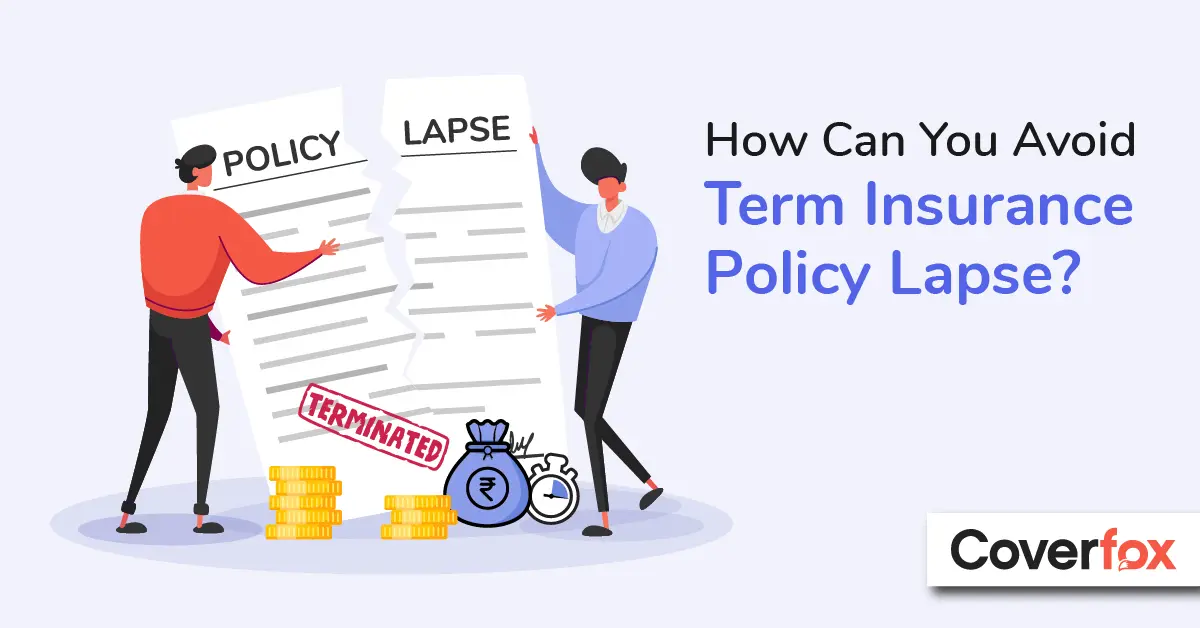When you sign up for a term insurance policy, you're making a long-term commitment to your financial security and that of your loved ones. However, life can be unpredictable, and there may be times when maintaining your policy becomes challenging. A lapse in your term insurance policy can lead to a loss of coverage and financial protection for your beneficiaries. Understanding what leads to a policy lapse and how to avoid it is crucial.

What is a Term Insurance Policy Lapse?
A term insurance policy lapse occurs when a policyholder fails to pay the premium within the grace period, which typically ranges from 15 to 30 days following the due date. Once a policy lapses, the insurer is no longer obligated to provide coverage, and if the insured person passes away, beneficiaries won't receive the death benefit.
The Consequences of a Policy Lapse
- Loss of Coverage: The most immediate consequence of a policy lapse is the loss of coverage, which means your family will not be financially protected in the event of your death.
- Financial Risk: Without coverage, your loved ones may be at financial risk, especially if they rely on your income.
- Higher Premiums: If you decide to reinstate your policy or purchase a new one, you may face higher premiums, especially if your health has declined.
- Underwriting Process: You may need to undergo the underwriting process again, which could lead to the discovery of new health issues that weren't present during the initial application.
What Leads To a Policy Lapse?
Several factors can lead to a term insurance policy lapse. It's important to be aware of these to take proactive measures to prevent a lapse.
Financial Constraints
Economic downturns, job loss, or unexpected expenses can make it difficult to keep up with premium payments.
Forgetfulness or Oversight
Busy lives and competing priorities can result in missing a payment. Even the most organized individuals can overlook a bill.
Misunderstanding Policy Terms
Some policyholders may not fully understand the terms of their policy, including when premiums are due and what the grace period entails.
Is It Possible To Avoid a Term Insurance Policy Lapse?
Yes, it is possible to avoid a term insurance policy lapse, and doing so should be a top priority for any policyholder. Here are strategies to ensure your policy remains in good standing.
Set Up Automatic Payments
The most foolproof way to avoid a term insurance policy lapse is to set up automatic payments. This ensures that your premiums are paid on time, every time, without any action required on your part.
Review Your Policy Regularly
Establish the routine of routinely reviewing your insurance policy. This will help you stay aware of premium due dates, grace periods, and other important details.
Keep Your Insurer Informed
If you change banks or credit cards, or if you move, make sure to update your insurer with the new information to prevent missed payments.
Plan for Financial Hardship
Create an emergency fund to cover your insurance premiums in case of financial hardship. This can give you a buffer to keep your policy active during tough times.
Communicate with Your Insurer
If you anticipate difficulty in making a payment, reach out to your insurer. They may be able to offer solutions such as a payment plan or temporary suspension of coverage.
Conclusion
A term insurance policy lapse can have serious consequences, but with the right approach, it can be avoided. By staying organized, prioritizing payments, and maintaining open communication with your insurer, you can ensure that your coverage remains uninterrupted. If your policy does lapse, act swiftly to explore reinstatement options. Remember, the security of your term insurance policy is the foundation of your family’s financial future.
Also Read: Importance of Insurance And Term Life Insurance FAQs You Need To Know
.jpg)

